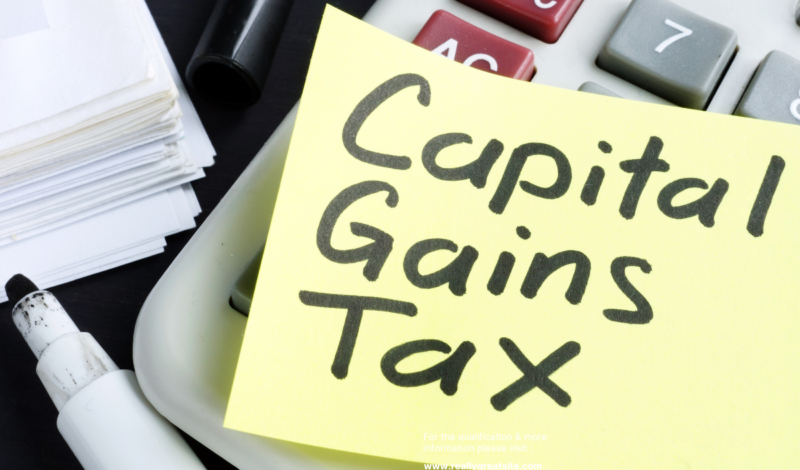Every country has laws guiding individuals, businesses, companies, and organizations across different jurisdictions. Among these tax laws in Kenya is the Capital Gains Tax (CGT). CGT is the sum of money levied on gain earned from the transfer of an asset. The transferor (seller) is required to declare the CGT and pay it to the Kenya Revenue Authority (KRA).
For example, if an individual acquires a portrait for $5,000 and sells it for $25,000 later, he gains $20,000. However, it is pertinent to know that individuals do not pay tax on the amount of money he receives from a transaction. Capital gain tax will be paid from the net gain. This means that you are allowed to deduct the expenses that you incurred, as discussed in the formula below. These expenses must be provable and allowable.
Kenya, like some other countries, demands individuals pay tax on their capital gains. The percentage for capital gain tax in Kenya is 15%. CGT is regarded as a final tax which means that it is not subject to additional taxes after payment of the 15% rate. This piece by a top law firm, will contain important information about CGT in Kenya, including how it applies and its exemptions.
What transfers are subject to Capital Gains Tax?
- A transfer, for purposes of CGT occurs when the asset/property is conveyed, sold, exchanged, disposed of, or is gifted. It is not relevant whether there was consideration or not.
- Where the property has been abandoned, surrendered (including surrender of shared or debentures, company dissolution), cancelled, forfeited or upon the expiration of all the rights to the property.
- Compensation received in the event of a loss, destruction, or extinction of a property whether there was money received in respect of the loss, destruction, or extinction. However, if the money received is utilized to reinstate the Property to its original form and in the same place within one year (or such longer period as may be approved by the Commissioner) then it may fail to qualify as a transfer.
How to compute your Capital Gains Tax?
Assuming you dispose of your parcel of land or want to transfer some shares. You will calculate net gain by removing the initial cost of acquisition of the land (these expenses can be many such as expenses incurred on assets sale or construction, costs incurred on improving the value, property maintenance, expenses incurred on title or right to property, valuation of the assets fees, legal expenses, loan interest incurred to acquire the property) from the amount you are selling the property. Whatever your outcome is will be subjected to 15% as tax.
To determine the net gain the formula used is:
Net Gain = (Transfer value – Incidental Costs on Transfer) – Adjusted Cost (Acquisition Cost + Incidental Costs on Acquisition + Any enhancement Cost)
Net Gain = (Transfer value – Incidental Costs on Transfer) – Adjusted Cost (Acquisition Cost + Incidental Costs on Acquisition + Any enhancement Cost)
Exemptions from Capital Gain Tax in Kenya
The Kenya Finance Act of 2022 in 2022 amended the Income Tax Act, which led to an increase from 5% to 15%. The amendment became effective from 1st January 2023.
CGT may not apply to all properties. There are some cases where there would be an exemption. However, a property will be exempted from CGT in the following instances.
- Transfer of a private residence if the property owner has occupied the residence; continuously for at least three years, immediately preceding the transfer;
- Transfer of property for the purpose only of securing a debt or a loan;
- Income that is taxed elsewhere;
- Transfer of listed shares;
- Issuance by a company of its own shares and debentures;
- Transfer by a creditor for the purpose only of returning property used as security for a debt or a loan;
- Transfer of assets between spouses;
- Transfer of assets between former spouses as part of a divorce settlement or a bona fide separation agreement;
- Transfer of assets to immediate family;
- Transfer to a company where spouses or a spouse and immediate family hold 100% shareholding; and/or
- Disposal of a property by a personal representative of any property to a person as beneficiary during the administration of the estate of a deceased person.
It should be noted that the Finance Act made an exception for entities that are certified by the Nairobi International Finance Center Authority with investments at least Kenya Shillings Five Billion in Kenya. These certified bodies shall be subjected to a CGT rate of 5% as opposed to the rate of 15%, if those investments were made prior to 31st December 2021, and the transfer is made after a period of five (5) years from the date of investment.
Paying your Capital Gain Tax in Kenya
There are certain things you must know before paying your capital gain tax in Kenya. Take note of the following things:
- Capital Gain Tax in Kenya is due on or before an individual transfers the property, but not later than the 20th day after the individual transferred the property.
- You can initiate capital gain tax payment online via iTax Portal on the KRA Platform.
- You can pay your capital gain tax through different payment modes such as Mpesa, or Real Time Gross Settlement (RTGS) System.
However, you should note that the payment slip is only valid for a period of thirty (30) days. If it exceeds this period, it is no longer valid.
Final Thoughts
It is important to keep a proper record of the expenses you incur for your transactions. This will prove relevant at the point where you must determine the CGT payable. It is also important to determine if your transfer is subject to CGT. If it is subject to CGT and you are the transferor, be sure to declare the net income to KRA and pay the CGT.
Disclaimer: This piece should not be regarded as legal advice, nor should it be considered as a substitute for legal consultation and/or legal advice from the best law firm in Kenya. Feel free to contact us by calling on +254703124871 or click here book an appointment with us.








